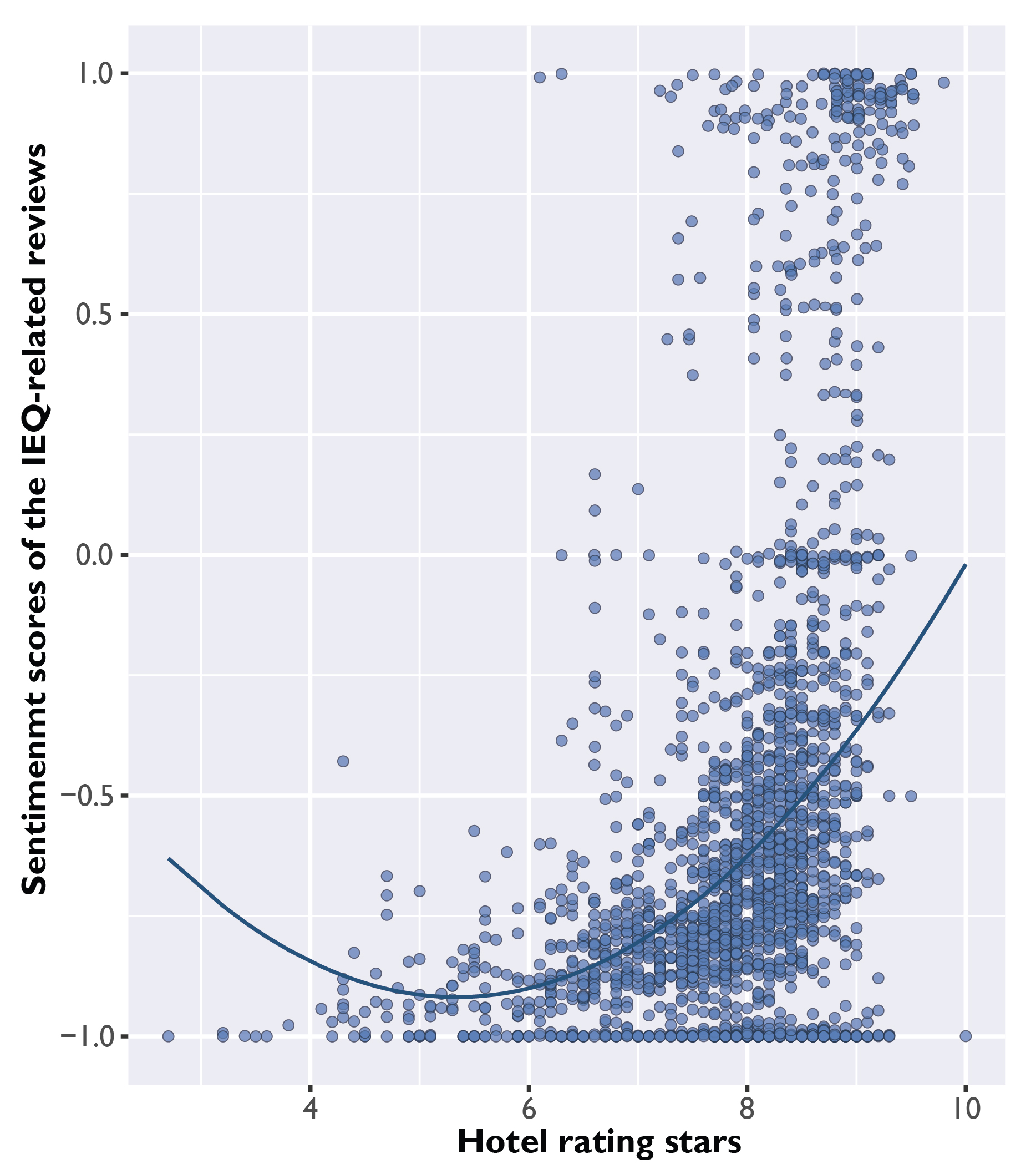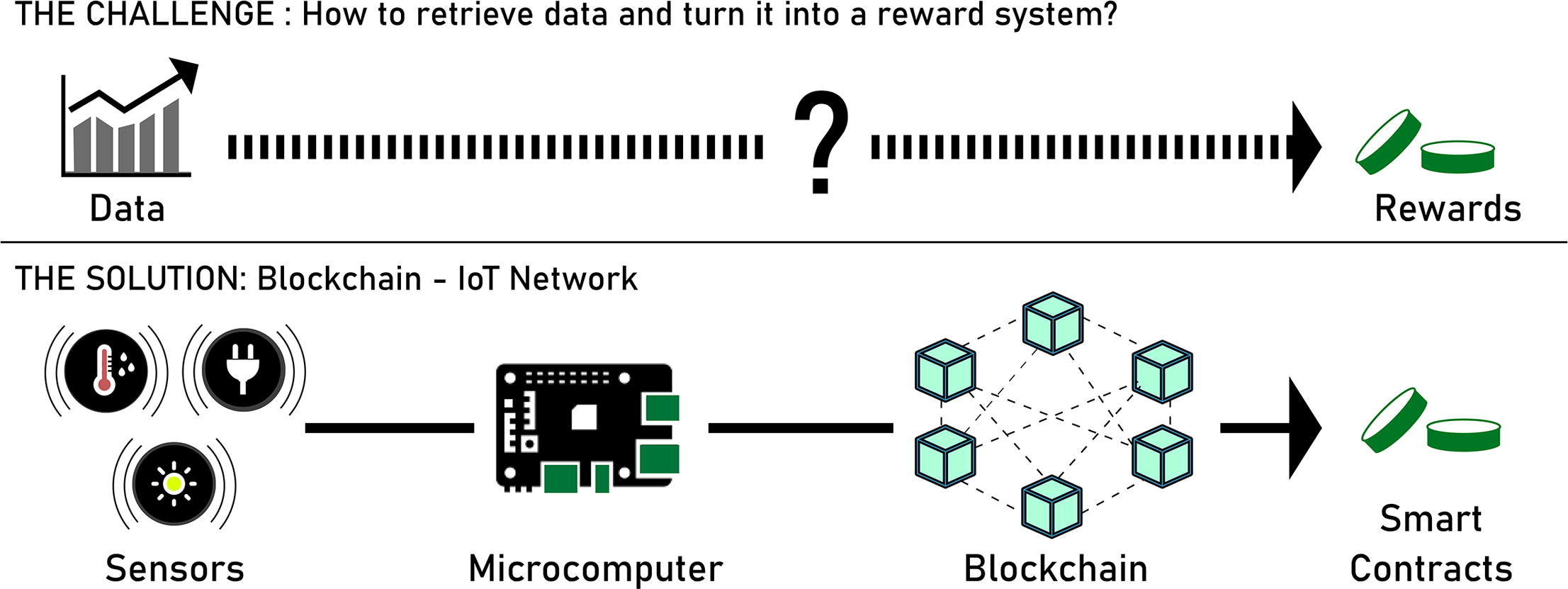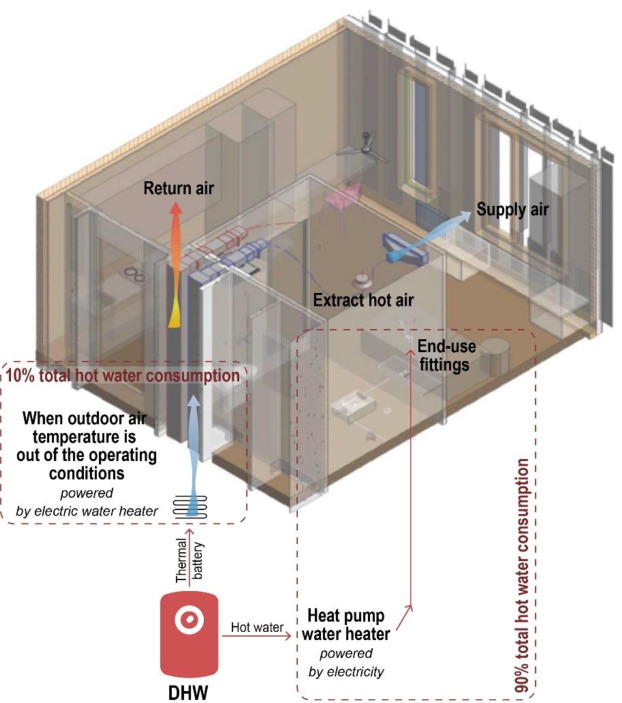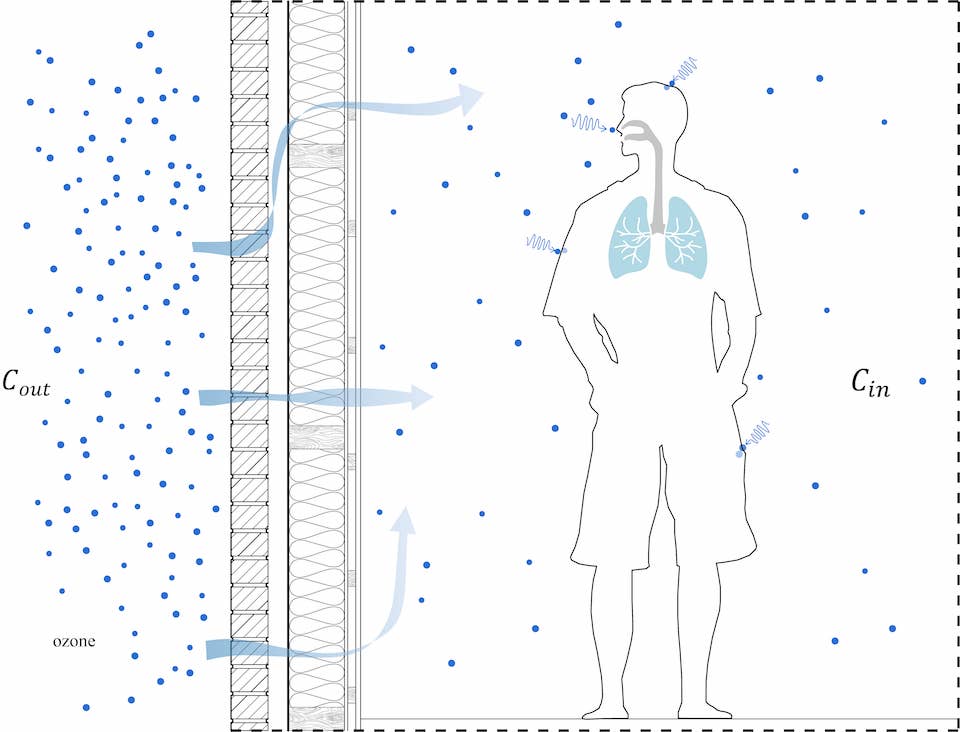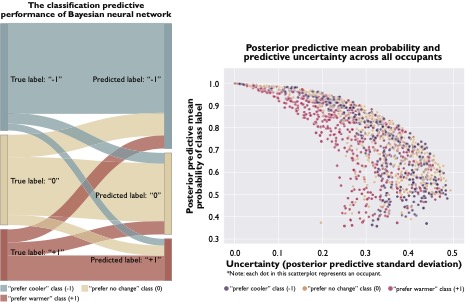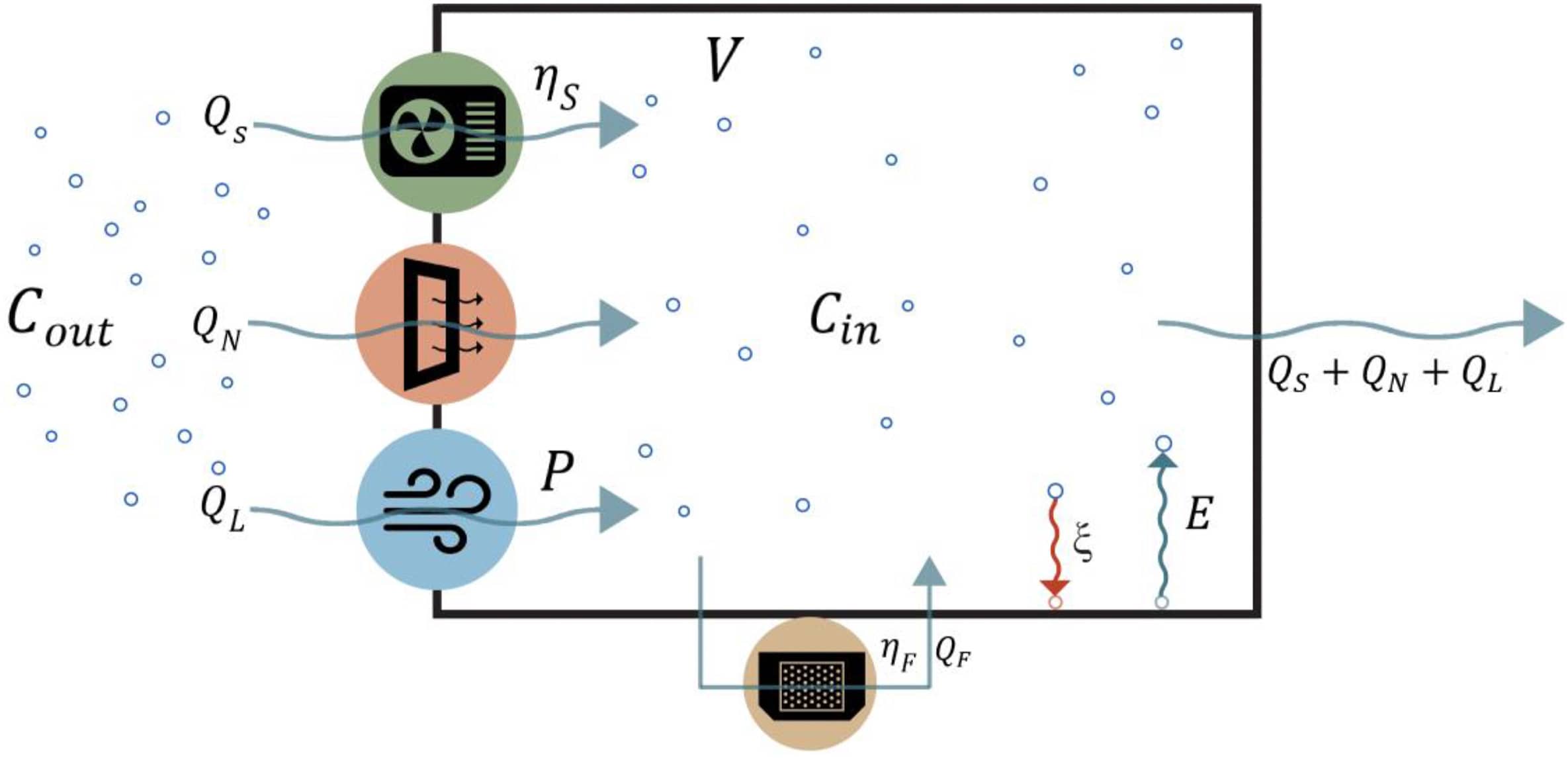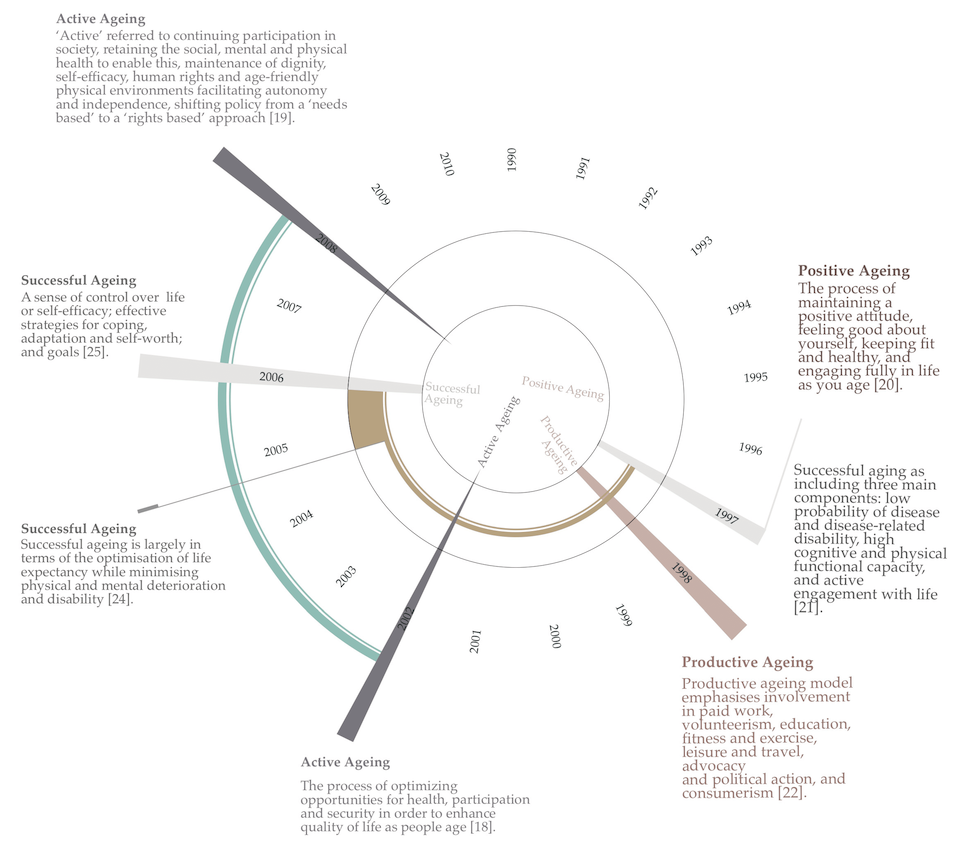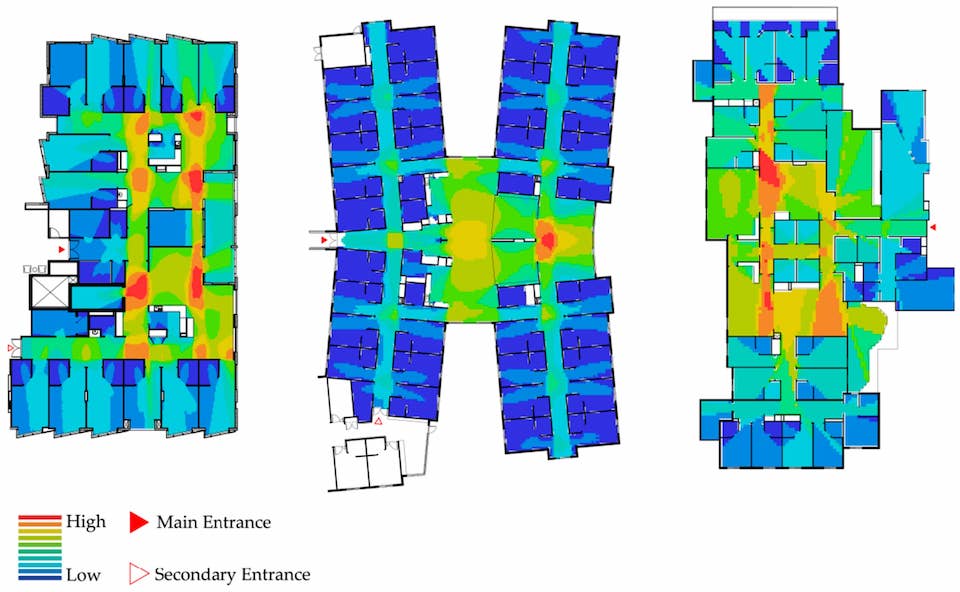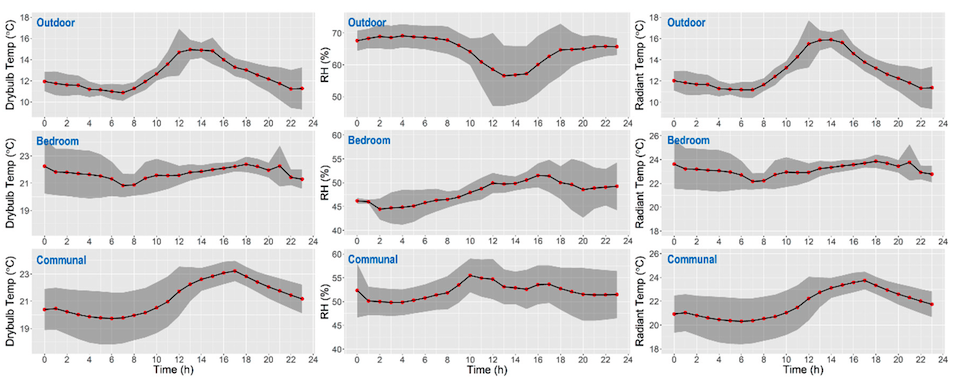Nan Ma, Qi Zhang, Fabricio Murai, William W. Braham, Holly W. Samuelson
The fact that “humans are effective sensors” and are inclined to report their impressions can be leveraged to collect data for a substantial number of buildings. This paper presents a text-mining approach to reveal the relationships between environmental conditions and occupant dissatisfaction in large populations. With a set of 1.2 million Booking.com open-ended reviews (i.e., 71,665 IEQ reviews) of temporary residences (e.g., hotels), we identified the prevalence of IEQ complaints, investigated the climate distributions and seasonal trends of IEQ complaints, and quantified the social benefits of IEQ in economic values.
Nan Ma, Qi Zhang, Fabricio Murai, William W. Braham, Holly W. Samuelson
Published in Building and Environment
Traditional post occupancy evaluation (POE) poses a challenge to the comprehensive knowledge of occupant dissatisfaction with indoor environmental quality (IEQ) due to the nature of the pre-defined questionnaire structure and time-consuming data collection procedures. At the same time,
Nan Ma, Alex Waegel, Max Hakkarainen, William W. Braham, Lior Glass, Dorit Aviv
Electric demand flexibility in buildings is highly dependent on occupant behavior. Evaluating and incentivizing these behaviors can provide grid-responsive support and encourage demand response (DR) participation. To achieve these goals, we developed an infrastructure for connecting Internet of Things (IoT) sensors to a distributed ledger (blockchain network) for long-term monitoring of energy and environmental performance. This Blockchain + IoT Network (BIN) uses Raspberry Pi minicomputers as platforms for connecting sensors to a blockchain network, to provide and analyze real-time indoor environmental quality (IEQ), energy, and carbon intensity data.
Nan Ma, Alex Waegel, Max Hakkarainen, William W. Braham, Lior Glass, Dorit Aviv
Published in Applied Energy
Electric demand flexibility in buildings is highly dependent on occupant behavior. Evaluating and incentivizing these behaviors can provide grid-responsive support and encourage demand response (DR) participation. To achieve these goals, we developed an infrastructure for connecting Internet of Things (IoT) sensors to a distributed ledger (blockchain network) for long-term monitoring of energy and environmental performance.
Ye Kang, Nan Ma, Victor Bunster, Victor W-C Chang, Jin Zhou
The Passive House Planning Package (PHPP) simulation tool is the only authorized software in Australia for the Passivhaus (PH) certification. Despite its key role in this certification scheme, previous studies have reported significant gaps between the simulated and actual performance. To address this limitation, this study introduces a bottom-up approach to building performance simulation based on a dynamic method combined with advanced appliance profiles. This study uses two-year monitored data in a PH-certified student accommodation building in Australia and validates the proposed bottom-up approach in both annual and monthly granularity.
Ye Kang, Nan Ma, Victor Bunster, Victor W-C Chang, Jin Zhou
Published in Energy and Buildings
The Passive House Planning Package (PHPP) simulation tool is the only authorized software in Australia for the Passivhaus (PH) certification. Despite its key role in this certification scheme, previous studies have reported significant gaps between the simulated and actual performance.
Impacts of building envelope design on indoor ozone exposures and health risks in urban environments
Nan Ma, Max Hakkarainen, Miaomiao Hou, Dorit Aviv, William W Braham
Much of human exposure to ozone takes place indoors. However, few studies have focused on human ozone exposures in normally occupied residential houses in the U.S. urban environments. Only rare studies have explored the implication of building envelope design variables on outdoor ozone penetration. Our study reveals the extent to which outdoor ozone penetrates and persists in the occupied houses in one of the most ozone-polluted cities.
Nan Ma, Max Hakkarainen, Miaomiao Hou, Dorit Aviv, William W Braham
Published in Indoor and Built Environment
Much of human exposure to ozone takes place indoors. However, few studies have focused on human ozone exposures in normally occupied residential houses in the U.S. urban environments. Only rare studies have explored the implication of building envelope design variables on outdoor ozone penetration.
Nan Ma, Liang Chen, Jian Hu, Paris Perdikaris, William W. Braham
Various observed and unquantifiable factors affect the thermal comfort of occupants in indoor environments and can lead to high uncertainty in the prediction and classification of their thermal preferences. The behavioral adaptation of occupants, by operating window systems for example, changes their thermal experience and expectations and therefore contributes to even higher prediction uncertainty. In this study, we applied a Bayesian neural network (BNN) algorithm to build a predictive model for occupant thermal preference using the ASHRAE Global Thermal Comfort Database II.
Nan Ma, Liang Chen, Jian Hu, Paris Perdikaris, William W. Braham
Published in Building and Environment
Various observed and unquantifiable factors affect the thermal comfort of occupants in indoor environments and can lead to high uncertainty in the prediction and classification of their thermal preferences.
Nan Ma, Dorit Aviv, Hongshan Guo, William W. Braham
The objective of this paper is to highlight evidence and variables from empirical and deterministic models, which are combined in analytical models that current machine learning techniques often overlook. This paper reviews the analytical models and identifies the corresponding input variables, discussing their application in models based on artificial neural networks (ANNs) and reinforcement learning (RL).
Nan Ma, Dorit Aviv, Hongshan Guo, William W. Braham
Published in Renewable and Sustainable Energy Reviews
The indoor environment directly affects health and comfort as humans spend most of the day indoors. However, improperly controlled ventilation systems can expend unnecessary energy and increase health risks, while improved thermal and air quality can often result in higher energy consumption.
Masa Noguchi, Nan Ma, Catherine Mei Min Woo, Hing-wah Chau, and Jin Zhou
Growing ageing population today may be necessitating building design decision makers to reconsider the indoor environmental quality (IEQ) standards in a way that accommodates senior occupants’ diverse and individual needs and demands. An experience design approach to rationalising and individualising end-user experience on how to utilise tangible products may serve to reflect user perceptions...
Masa Noguchi, Nan Ma, Catherine Mei Min Woo, Hing-wah Chau, and Jin Zhou
Published in MDPI Sustainability
Growing ageing population today may be necessitating building design decision makers to reconsider the indoor environmental quality (IEQ) standards in a way that accommodates senior occupants’ diverse and individual needs and demands. An experience design approach to rationalising and individualising end-user experience on how to utilise tangible products may serve to reflect user perceptions.
Hing-wah Chau, Clare Newton, Catherine Mei Min Woo, Nan Ma, Jiayi Wang, Lu Aye
There is a significant increase in the number of people with dementia, and the demand for residential support facilities is expected to increase. Providing an appropriate living environment for residents with dementia, which can cater for their specific needs is crucial...
Hing-wah Chau, Clare Newton, Catherine Mei Min Woo, Nan Ma, Jiayi Wang, Lu Aye
Published in MDPI Buildings
There is a significant increase in the number of people with dementia, and the demand for residential support facilities is expected to increase. Providing an appropriate living environment for residents with dementia, which can cater for their specific needs is crucial.
Nan Ma, Hing-wah Chau, Jin Zhou, Masa Noguchi
Humans relate to the living environment physically and psychologically. Environmental psychology has a rich developed history while experience design emerged recently in the industrial design domain. Nonetheless, these approaches have barely been merged, understood or implemented in architectural design practices. This study explored the correlation between experience design and environmental psychology...
Nan Ma, Hing-wah Chau, Jin Zhou, Masa Noguchi
Published in MDPI Sustainability
Humans relate to the living environment physically and psychologically. Environmental psychology has a rich developed history while experience design emerged recently in the industrial design domain. Nonetheless, these approaches have barely been merged, understood or implemented in architectural design practices. This study explored the correlation between experience design and environmental psychology.
Nan Ma and Kai She
The invention relates to an ecological recyclable large-scale building group energy system which can be applied to a plurality of building groups in cities. Each building group includes a plurality of buildings. Solar cell panels and solar heat collectors are paved on the roofs and/or walls of the buildings; storage batteries and heat-insulating water storage tanks are arranged.,,
Nan Ma and Kai She
The invention relates to an ecological recyclable large-scale building group energy system which can be applied to a plurality of building groups in cities. Each building group includes a plurality of buildings. Solar cell panels and solar heat collectors are paved on the roofs and/or walls of the buildings; storage batteries and heat-insulating water storage tanks are arranged in each building group;

